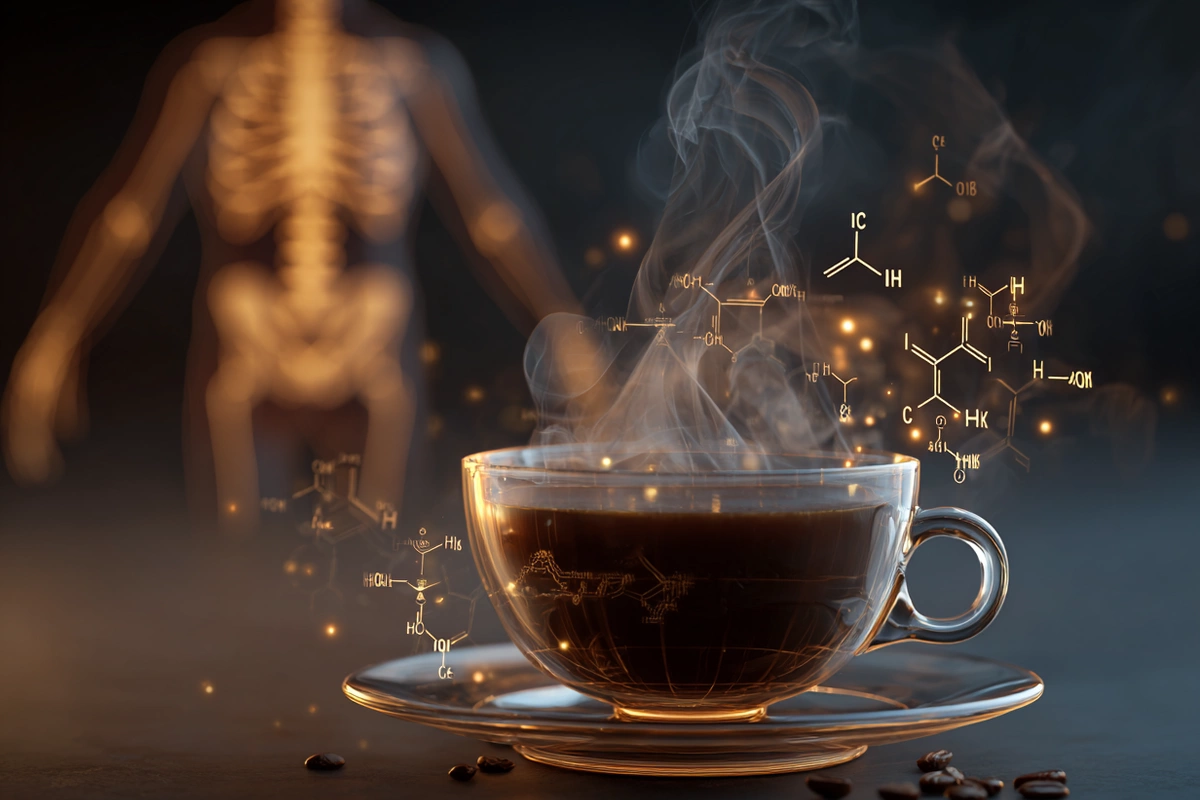Coffee Chemistry: What It Consists of and Why It Makes You Want to Sleep — Explaining Scientifically

Coffee has long become an integral part of the morning rituals for millions of people. It is associated with vigor, energy, and the beginning of a productive day.
However, for some people, the effect is the opposite: instead of an energy boost, drowsiness appears. The reasons for this phenomenon lie in the chemical composition of the drink and individual characteristics of the body.
What coffee contains
Caffeine is the main stimulant that has made coffee famous as an invigorating drink. It temporarily blocks adenosine - a substance that causes fatigue. But coffee is not just caffeine. It contains many other active compounds, such as chlorogenic acids (antioxidants), organic acids (citric, malic), natural sugars, oils, as well as alkaloids, including theobromine and theophylline. All this affects not only the taste and aroma but also how the body perceives the drink.
Why coffee might make you want to sleep
Sometimes coffee gives the opposite effect instead of vigor. There may be several reasons for this.
Caffeine blocks adenosine, but its level in the body continues to rise. When the effect of caffeine weakens, the accumulated adenosine sharply "crashes" onto the receptors, causing severe fatigue - this is called an energy crash.
Coffee also has a diuretic effect. With insufficient water consumption, mild dehydration is possible, which can cause headaches, decreased concentration, and drowsiness.
The reaction to coffee is individual. In some people, caffeine is metabolized too quickly or too slowly, which can cause non-standard reactions - from drowsiness to nervousness.
If coffee is consumed against a background of chronic fatigue, it may give only a temporary effect, followed by an even greater decline in energy.
In addition, coffee with the addition of large amounts of sugar or cream can cause a sharp spike and subsequent drop in blood glucose levels, leading to a feeling of lethargy.
How to avoid drowsiness after coffee
It's better not to drink coffee immediately after waking up - at this moment, the cortisol level is already high enough. A more suitable time is an hour after waking up.
It's advisable to avoid adding large amounts of sugar and fatty cream.
It's beneficial to accompany a cup of coffee with a glass of water to avoid dehydration.
You shouldn't consume coffee in the evening - even in the absence of a visible stimulating effect, it can affect sleep quality.
If coffee causes drowsiness regularly, this is a signal from the body about overwork or increased sensitivity to stimulants.
Conclusion
Coffee is a complex natural drink, the effect of which depends on many factors. Drowsiness after its consumption is not uncommon and is explained by both biochemical mechanisms and lifestyle. It's important to understand the signals of your body and consume coffee consciously so that it brings benefits rather than interferes.
Similar News
Five scientifically proven ways to increase happiness levels revealed
Physician-therapist and nutritionist Irina Tyurina named five scientifically proven ways to increase happiness levels. She shared this in a conversation with jo...




 Azərbaycanca
Azərbaycanca  По-русски
По-русски  English
English 






